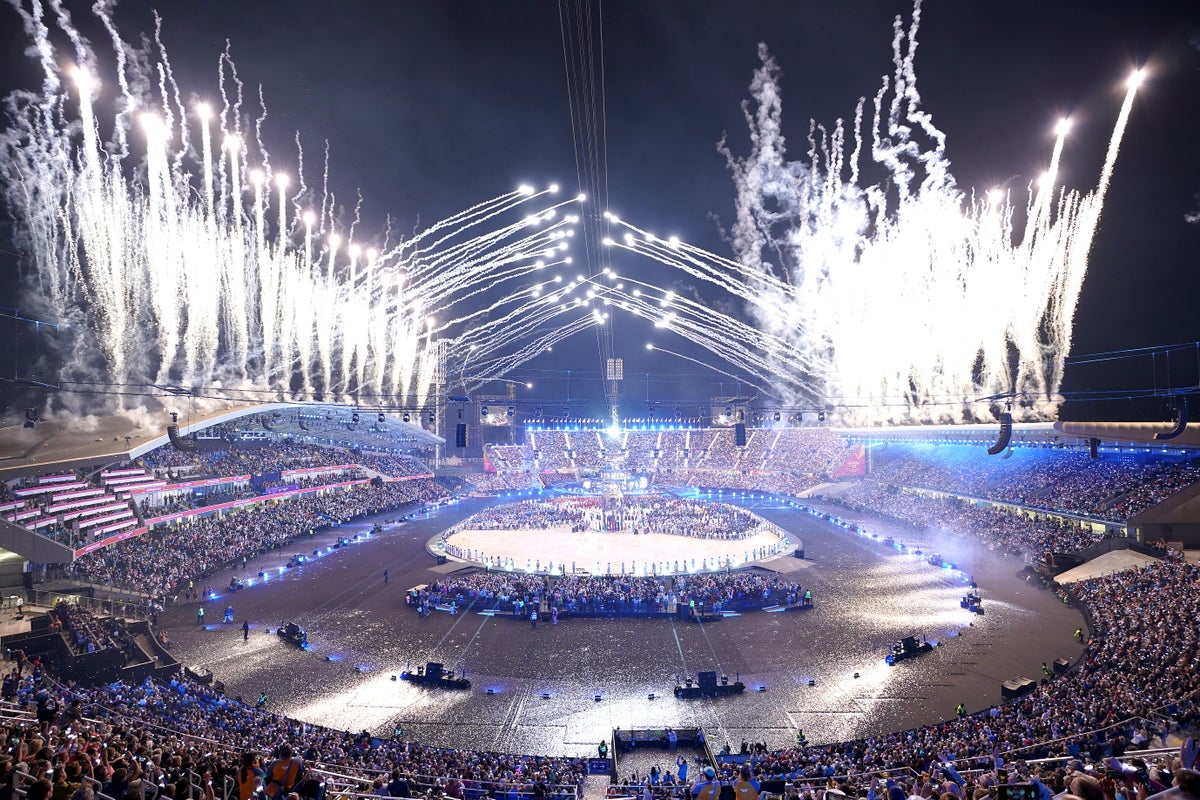
The organisers of the Commonwealth Games say they will listen to any offer from the United Kingdom to step in as emergency hosts for the 2026 event after the Australian state of Victoria’s sudden withdrawal.
State premier Daniel Andrews announced Victoria was pulling out on Tuesday, citing rising costs.
Katie Sadleir, the chief executive of the Commonwealth Games Federation (CGF), said her organisation was “open” to discussions with all members with a view to replacing Victoria as hosts – including the UK.
Before that, Sadleir said the CGF will work with its lawyers on agreeing a suitable compensation deal with Victoria following its withdrawal.
She told the PA news agency: “The UK are fantastic hosts and we would be very open to having a conversation with them about it, if that’s something they would be interested in doing.”
Birmingham stepped in as hosts of the 2022 Games after the CGF stripped South African city Durban of hosting rights back in 2017.
Asked if the British Government would encourage a UK bid for 2026, Prime Minister Rishi Sunak’s official spokesman said: “We are getting slightly ahead of ourselves.”
The Downing Street spokesman had earlier said he hoped a “viable solution” could be found to hold the event in Australia.
Asked if Australia remained the CGF’s first preference, Sadleir said: “We’re open to all opportunities, but Commonwealth Games Australia are a partner with us in terms of the hosting contract that we’ve all been working to for quite some time.
“I will be meeting with (Craig Phillips, CGA’s chief executive) to talk about what other (Australian) cities and states are interested, so we will have that conversation with them. But at the same time, we must be open to having discussions with our wider members as well.”
Victoria’s withdrawal will inevitably reopen the debate about the Games’ future and the cost of staging it.
Andrews said the estimated costs to his state for the bid were now up to seven billion Australian dollars (£3.6billion).
Victoria were the first hosts who were able to take advantage of the CGF’s new ‘roadmap’, which was designed to make staging the event more cost-effective. Among the measures within the roadmap were a reduction in the number of compulsory sports from 16 to two, and the removal of the requirement for a bespoke athletes’ village.
Sadleir believes Victoria had the flexibility to stage the Games much more cheaply, but chose not to, opting to hold the event over five provincial hubs rather than centring it on Melbourne.
“The cost of the Games is in relation to what the host country wants to get out of it,” she said.
“This was an expensive, unique Games, but it was driven by what the Victorian Government wanted to do.”
Sadleir, who described the news of Victoria’s withdrawal as “devastating”, said the CGF had been given eight hours’ notice of the decision to pull out.
Sadleir said CGA chief executive Craig Phillips was “correct” in his statement earlier on Tuesday that Victoria had “wilfully ignored” recommendations that could have reduced costs, such as using existing facilities in Melbourne.
“At all times we questioned whether or not they had really thought through the dispersed model,” added Sadleir.
“They increased the number of hubs from what the original bid was. They added additional sports, they decided to invest in facilities outside of Melbourne, some of them which had limited legacy because of the pop-up nature of them. But those were decisions that they made.
“We did go back to them several times to say, ‘are you sure?’ and were assured.
“We were aware there was a budget submission, it was a paper that went to the (CGF) board in mid-April. So we were aware (of an increase in estimated costs), but we did not have those figures that are (now) in the public domain.
“We definitely did provide a variety of solutions to actually reduce the cost of the Games. They said it was their unique model and they wanted to invest in regional economic development. They did not want anything in Melbourne that was existing, they wanted to invest in the regions and at all times we were led to believe that they had the funding to do that.”
The British Government put the cost of staging the Birmingham Games last year at £778million, and an independent report published in January said the Games had already contributed £870.7m to the UK economy by that point.
Asked if she could assure athletes there would be a Games in 2026, Sadleir said: “What I can assure them is that I will be working very hard to make that happen.”
On the subject of compensation from Victoria, Sadleir said: “We entered into a contract with (Victoria) to deliver a Games. They are defaulting on that contract.
“There are a series of clauses that articulate the kind of cash flows that would have happened if the Games had gone on. We are sitting down to look at options to come to a resolution that we will be happy with.”







